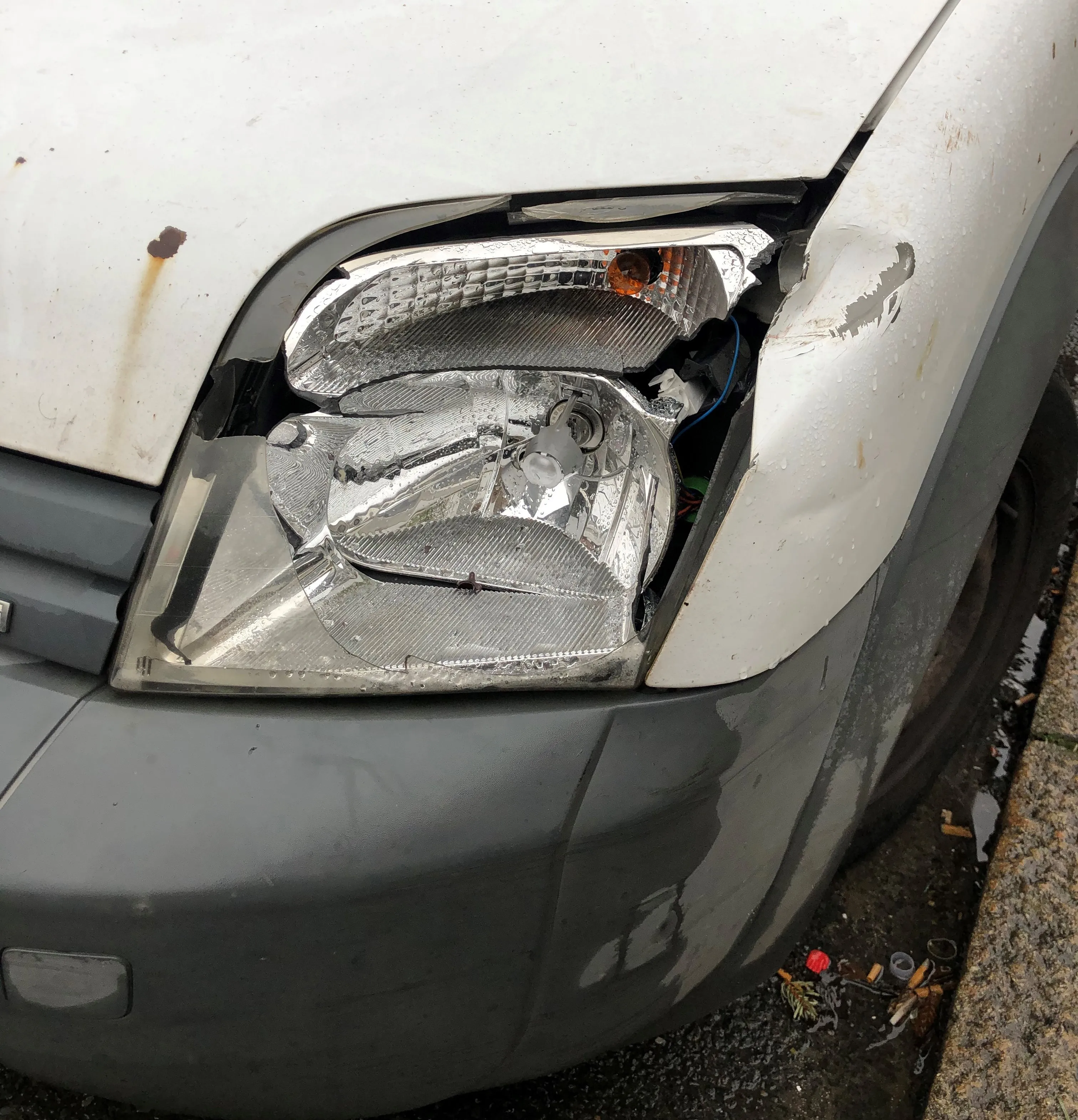Better road safety is helping to cut KSI rates right across the EC - Mike Woof writes
Road safety continues to improve in Europe, with official statistics for 2012 showing a drop in fatalities of 2,661 compared with the figures for 2011. The latest data from Pan-European police body TISPOL shows an encouraging trend towards better road safety. This highlights safety improvements right across the EU. In 2012, a total of 27,700 people were killed in road crashes in the European Union’s 27 member states, eq
February 19, 2014
Read time: 4 mins
Better road safety is helping to cut KSI rates right across the EC - Mike Woof writes
Road safety continues to improve in Europe, with official statistics for 2012 showing a drop in fatalities of 2,661 compared with the figures for 2011. The latest data from Pan-European police body4753 TISPOL shows an encouraging trend towards better road safety. This highlights safety improvements right across the EU. In 2012, a total of 27,700 people were killed in road crashes in the 1116 European Union’s 27 member states, equivalent to 55 people/million inhabitants. This was the lowest road fatality rate so far recorded since accurate data for all of the 27 EU nations were first collated.
Road deaths for 2012 dropped by 9% overall from the figure recorded for 2011. By comparison, the reduction in road deaths from 2010 to 2011 was 3%, while from 2009 to 2010 it was 11%. Since 1965, the number of road deaths in the 27 nations of the EU has fallen by 67% and this is significant given the massive increase in vehicle numbers as well as distance travelled. In addition to the lives lost, more than 300,000 people are seriously injured in European road traffic every year, with many more suffering minor injuries. However the rate of serious injuries is also falling, broadly in line with the reduction in overall road deaths.
Malta, the UK, Norway, Sweden and Denmark were the EU countries showing the best traffic safety figures relative to their population in 2012. Latvia and Spain, where the number of deaths fell by nearly 70% from a poor baseline, saw the greatest reductions in road deaths from 2001 to 2012. Similarly, Ireland, Denmark, Lithuania, Estonia, Portugal and France have recorded faster than average decreases, with the number of deaths falling by at least 55%. Information from police shows that in the majority of road crashes, the driver’s actions were a contributing factor to the crash. Human error is a major risk factor in traffic, and the driver’s health and driving capacity are of key importance. Fatigue also figures highly as a cause of crashes. Driving under the influence of alcohol and at excessive speed are other major causes of crashes. But the data shows that tougher enforcement actions by the police are having a major benefit in casualty reduction.
This has continued in recent months with tough police action across Europe that has seen a crackdown on drink-driving offences. Information from TISPOL shows that 1,141,058 roadside breath tests were carried out to check for alcohol use, with 15,305 showing positive. Police also checked drivers for drugs in the operation, and 2,133 offences were detected. The operation was organised by TISPOL in 31 European countries. TISPOL president Koen Ricour said, “These results show that too many people are still prepared to risk driving after they have taken alcohol or drugs. Regardless of the legal limit, it’s vital for everyone to know and accept that impairment starts with your very first drink and will reduce your ability to drive safely. We want to educate road users about the consequences of impairment. TISPOL is committed to a united approach, working with other stakeholders, governments and road safety organisations to provide effective deterrent messages. But we will also continue to seek out those drink-drivers and drug-drivers who ignore the warnings, and, in so doing, unnecessarily put their own lives and the lives of other innocent road users at risk.”
Stopping drivers to check for alcohol and drug offences also provides police officers with the opportunity to make other appropriate safety and security checks. During the week of this operation, officers also detected and dealt with offences connected with illegal immigration and human trafficking (107), possession of drugs (460), firearms (79) and stolen goods (82), as well as 1,803 other crimes. Data from insurance companies shows that criminals do have higher incidences of committing driving offences such as being under the influence of drink or drugs while at the wheel, driving defective, unlicensed or uninsured vehicles or speeding. Police checks for alcohol use amongst drivers can also be effective for highlighting general crimes being committed, given trends towards patterns of behaviour amongst more regular offenders.
Road safety continues to improve in Europe, with official statistics for 2012 showing a drop in fatalities of 2,661 compared with the figures for 2011. The latest data from Pan-European police body
Road deaths for 2012 dropped by 9% overall from the figure recorded for 2011. By comparison, the reduction in road deaths from 2010 to 2011 was 3%, while from 2009 to 2010 it was 11%. Since 1965, the number of road deaths in the 27 nations of the EU has fallen by 67% and this is significant given the massive increase in vehicle numbers as well as distance travelled. In addition to the lives lost, more than 300,000 people are seriously injured in European road traffic every year, with many more suffering minor injuries. However the rate of serious injuries is also falling, broadly in line with the reduction in overall road deaths.
Malta, the UK, Norway, Sweden and Denmark were the EU countries showing the best traffic safety figures relative to their population in 2012. Latvia and Spain, where the number of deaths fell by nearly 70% from a poor baseline, saw the greatest reductions in road deaths from 2001 to 2012. Similarly, Ireland, Denmark, Lithuania, Estonia, Portugal and France have recorded faster than average decreases, with the number of deaths falling by at least 55%. Information from police shows that in the majority of road crashes, the driver’s actions were a contributing factor to the crash. Human error is a major risk factor in traffic, and the driver’s health and driving capacity are of key importance. Fatigue also figures highly as a cause of crashes. Driving under the influence of alcohol and at excessive speed are other major causes of crashes. But the data shows that tougher enforcement actions by the police are having a major benefit in casualty reduction.
This has continued in recent months with tough police action across Europe that has seen a crackdown on drink-driving offences. Information from TISPOL shows that 1,141,058 roadside breath tests were carried out to check for alcohol use, with 15,305 showing positive. Police also checked drivers for drugs in the operation, and 2,133 offences were detected. The operation was organised by TISPOL in 31 European countries. TISPOL president Koen Ricour said, “These results show that too many people are still prepared to risk driving after they have taken alcohol or drugs. Regardless of the legal limit, it’s vital for everyone to know and accept that impairment starts with your very first drink and will reduce your ability to drive safely. We want to educate road users about the consequences of impairment. TISPOL is committed to a united approach, working with other stakeholders, governments and road safety organisations to provide effective deterrent messages. But we will also continue to seek out those drink-drivers and drug-drivers who ignore the warnings, and, in so doing, unnecessarily put their own lives and the lives of other innocent road users at risk.”
Stopping drivers to check for alcohol and drug offences also provides police officers with the opportunity to make other appropriate safety and security checks. During the week of this operation, officers also detected and dealt with offences connected with illegal immigration and human trafficking (107), possession of drugs (460), firearms (79) and stolen goods (82), as well as 1,803 other crimes. Data from insurance companies shows that criminals do have higher incidences of committing driving offences such as being under the influence of drink or drugs while at the wheel, driving defective, unlicensed or uninsured vehicles or speeding. Police checks for alcohol use amongst drivers can also be effective for highlighting general crimes being committed, given trends towards patterns of behaviour amongst more regular offenders.







